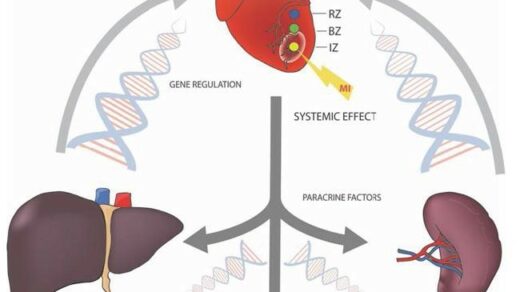Squamous cell carcinoma of the anal canal (SCCA) most commonly affects women and is closely associated with HPV infection. Researchers search for novel blood-based biomarkers that track responses to SCCA.

Squamous cell carcinoma of the anal canal (SCCA) is a rare cancer of the anogenital track and is closely associated with prior human papalomavirus (HPV) infection. This disease most commonly affects women versus men, with an average incidence rate ratio of approximately 2:1. Large sample studies of patients with anal cancer are limited, and thus, no blood-based biomarkers are currently available for SCCA.
Researchers from The University of Texas – MD Anderson Cancer Center, Terasaki Foundation of Biomedical Sciences, and Vanderbilt Ingram Cancer Center conducted a retrospective, single-institution study to determine the correlation between biopsy-proven SCCA and the carcinoembryonic antigen (CEA—a commonly employed assay for patients with colorectal adenocarcinoma). This paper was chosen as the cover of Oncotarget’s Volume 12, Issue 11, and entitled, “CEA as a blood-based biomarker in anal cancer.”
“Since no blood-based biomarkers are currently available in a CLIA-certified laboratory for the routine management of SCCA, we performed a retrospective, single-institution study to correlate serum CEA levels with clinical and pathologic outcomes in patients across all stages and presentations of SCCA.”
The Study
Researchers retrospectively analyzed 219 patients who were treated at The University of Texas – MD Anderson Cancer Center between 2013 and 2020. The team collected demographic data, clinical history, and CEA levels, including gender, ethnicity, stage at initial diagnosis of SCCA, HPV status, HIV status, and smoking history. Patients with coexisting second primary cancers besides SCCA were excluded from their analysis.
The median age of patients in the study was 56 years old, 74% were female, and 89% were of Caucasian ethnicity. At the time of the initial CEA measurement, patients were at various stages of SCCA, with 39% in stage III and 41% with metastatic disease to distant organs. 67% of patients had currently or previously tested positive for HPV infection. Statistical analysis was calculated using the summarized demographic and clinical characteristics of patients as means with associated standard deviations.
“Here we report the largest series detailing the relevance of CEA as a biomarker for patients with SCCA.”
Results
In general, for the particular population in this study, the researchers did not find significantly elevated serum CEA levels. They did not observe an association between patient survival and serum CEA levels at the time of presentation of initial diagnosis of distant metastases. However, they did observe elevated levels of CEA in some patients with metastatic SCCA.
“Interestingly, our study demonstrates an association between expression of CEA protein on tumor cells with corresponding serum CEA levels, when elevated, in patients with metastatic SCCA.”
The researchers found abnormally high levels of CEA in approximately 40% of patients with metastatic SCCA involving distant visceral organs and in patients with distant non-regional lymph node involvement only. They note that despite the similar prevalence of abnormal CEA levels in these two groups, mean CEA levels trended higher in patients with distant organ metastases. Given this finding, the researchers asserted that CEA monitoring may be best reserved for this subpopulation of patients with metastatic SCCA who have distant organ metastases.
“Even though, when elevated, trends in relative levels over time did appear to reflect the associated radiographic response to systemic therapy, the relative paucity of elevated CEA levels in this cohort renders this assay clinically unreliable in the management of metastatic SCCA.”
Conclusion
This paper concludes by deeming the CEA assay an unreliable biomarker for the management of SCCA in general. However, study limitations were addressed. The researchers urge for the development of novel approaches with serum biomarkers for patients with this rare, although increasingly diagnosed, malignancy.
“Our data regarding the relative lack of utility for serum CEA in the management of SCCA are strengthened by the inclusion of patients across all stages of disease presentation.”
Click here to read the full scientific study, published by Oncotarget.
—
Oncotarget is a unique platform designed to house scientific studies in a journal format that is available for anyone to read—without a paywall making access more difficult. This means information that has the potential to benefit our societies from the inside out can be shared with friends, neighbors, colleagues, and other researchers, far and wide.
For media inquiries, please contact media@impactjournals.com.




